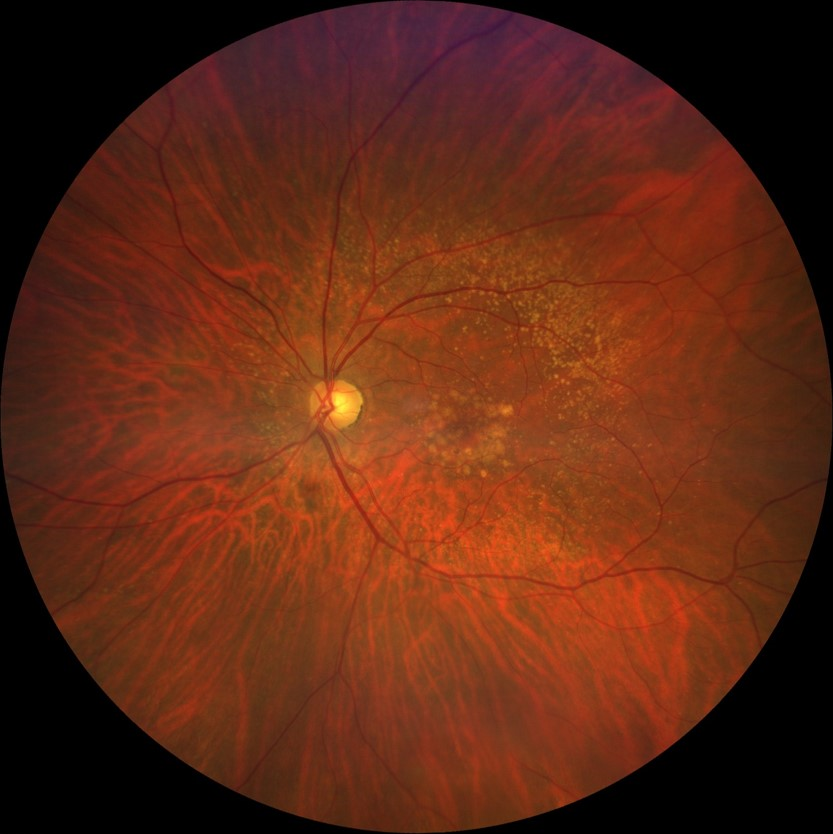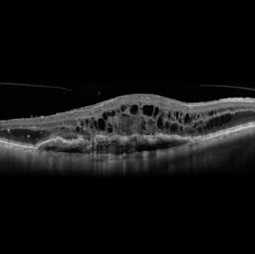Macular Degeneration

The macula is the area at the back of the eye that we use for seeing fine detail; it is responsible for good sight that will allow reading, recognising faces, driving. A macula problem does not normally affect your ability to walk around, because your peripheral vision is not affected.
There are many types of macula problems including several genetic macula dystrophies that can affect younger people, but the majority of macula problems are age related. Age-related Macular Degeneration (AMD) is the leading cause of sight loss in the UK; around one in 10 people aged 65 years or over, will show signs of AMD.
How is it diagnosed?
Macula problems affect your central sight. One of the first symptoms that will be noticed is straight lines appear wavy or patches are missing in the centre of the field of vision. If the condition progresses, the central sight becomes increasingly blurred.
Your optometrist will be able to diagnose a macula problem after measuring your sight and examining the back of the eyes. Signs of AMD are visible on the retina. You might be shown a grid, rather like the grid of a crossword, and be asked whether the lines are distorted; in addition, many optometrists today will scan the back of the eye using an Optical Coherence Tomographer (OCT). The scan produces a cross-section image through the retina which allows the practitioner to determine whether the macular degeneration is ‘wet’ or ‘dry’.

What are the treatments?
There is no treatment for dry macular degeneration but dry AMD tends to progress slowly. Wet macular degeneration can be treated if it is caught early enough. Treatments are normally carried out by an ophthalmologist, who will inject a drug into the gel inside the eye which arrests the growth of the new blood vessels that are leaking at the back of the eye. It is therefore important to spot any changes in your sight early and contact your optometrist if you suspect there might be a problem with your central vision.
Useful websites
- Macular Society
https://macularsociety.org